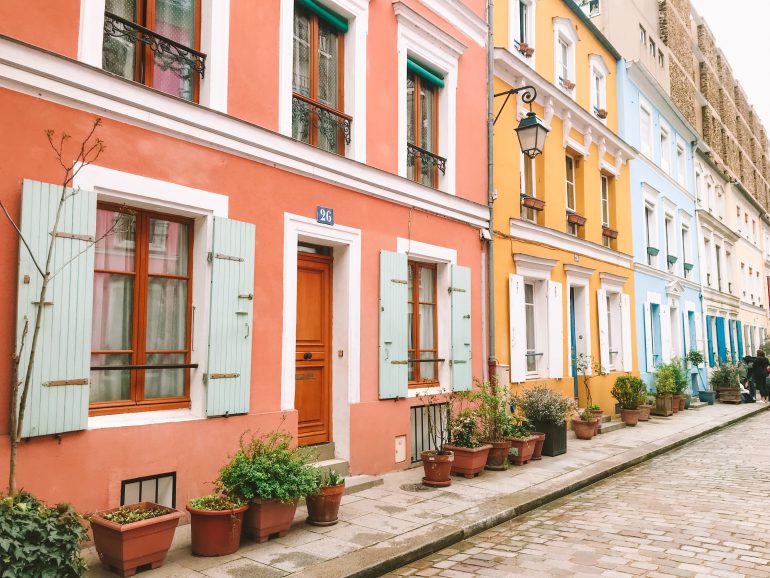Many countries continue to have strict travel restrictions in place, and the possibility of international travel still remain limited. Paris has loosened travel restrictions for travelers across European Nations and a few other countries, but there are many restrictions in place within the city. Before you plan to visit Paris, here are the latest developments you ought to know.
Disclaimer: This blog is updated weekly to the best of our knowledge. For the latest travel advisories, we recommend checking the official government website.
Travel Restrictions in Paris - An Overview
Travelers flying to Paris from countries outside of the EU and a few other countries like New Zealand, Rwanda, South Korea, Thailand, Tunisia, and Uruguay must present results of a negative virology COVID-19 test, like a PCR test, carried out less than 72 hours before the flight.
Travelers who are permitted to enter France from countries that are not exempt must quarantine upon arrival. Those with no symptoms must self-isolate for 14 days, and those with symptoms must quarantine for up to 30 days.
Who Can Visit Paris Now?
Transportation in Paris - Restrictions
- The RATP disinfects the buses, tramways, and metro and RER trains twice a day, with special attention to touch point areas such as doors, grab handles and vertical poles, and staircase or escalator handrails.
- Face masks are a must while traveling in any mode of public transport in Paris, along with social distancing of a minimum 2 meters at all points.
- Bus, metro and tramway doors open automatically at every single stop to avoid touch at door handles.
- Free hand sanitizer dispensers have been installed at stations to avoid the spread of the virus and enable frequent sanitization by travelers.
- Travelers can limit contact and reduce waiting time in queues by using the RATP mobile app to buy or top up tickets or travel cards.
Eating out in Paris - Restrictions
As of October 2020, Paris will shut all bars and restaurants are allowed to remain open only if strict hygiene rules are in place. Below are the list of restrictions in place at restaurants in Paris:
- Space of 1 meter between chairs of different tables must be maintained and only a maximum of six people at each table. This is to reduce the density of people in an enclosed space to limit passing of aerosols that carry the infection. Restaurants can also install protective screens as an added protection.
- All restaurant staff must wear masks in the dining area, at reception and in the kitchen.
- Customers are also required to wear a mask till their first course is served and put it back on when moving around the restaurant and in between courses
- Restaurant staff must keep details of all diners in a registry kept at the entrance.
- Online reservations are recommended to avoid queuing in front of the establishment.
- All restaurants will provide hand sanitising gel dispensers in easily accessible places and at least at the entrance to the restaurant (and ideally on each table).
- Customers are required to pay at the table rather than at the counter in order to avoid them moving around inside the restaurant. Contactless card payments are encouraged over cash payments.
- Cloakrooms for coats and personal belongings are temporarily closed.
- Customers are not allowed to have a drink while standing inside or outside the restaurant.
- Restaurants will avoid providing objects that can be touched by several customers (books, games, newspapers, salt shakers, etc.) For example, salt or pepper will be offered in single sachets.
Tourist Attractions that are now open in Paris
Here's a complete list of all the tourist landmarks and attractions that are now open in Paris.
Paris Travel Protocols
As of October 2020, all non-European citizens are no longer able to enter the Schengen area.
The exceptions are for:- Citizens of the United Kingdom, Iceland, Norway, Switzerland, Liechtenstein, San Marin, Monaco, Andorra and Vatican
- Foreign citizens holding a French residence permit or a European residence permit returning home.
- People in charge of goods transportation.
- Health professionals mobilized in the fight against Covid-19.
All passengers traveling to Paris are requested to observe a a 14-day voluntary quarantine period to protect themselves and protect others.
For French citizens, the French State advises against traveling abroad (except Schengen area and authorized countries), in view of the travel restrictions in France and the measures taken by many countries at often very short notice (interruption of air links, ban on entry into the territory, compulsory isolation, etc.).
Sign up for our monthly newsletter
Your dose of travel fix - from hacks and deals to travel tips and everything in between, delivered monthly to your inbox
Quarantine Rules in Paris
For those looking to enter Paris, two additional documents are required:
- An exempted movement certificate for Metropolitan France, to be presented to travel companies prior to departure as well as to border control authorities (travel by air, sea and land and rail).
- COVID-19 free declaration (included in the same document).
In lieu of on-arrival quarantine or isolation, travelers visiting France are encouraged to obtain a negative PCR test beforehand. Failure to do this will result in an on-site PCR test and may necessitate a 14-day quarantine to be undertaken at a location of their choice or special accommodations where appropriate.
Tips For Staying Safe in Paris
- The risks of getting COVID-19 are higher in crowded and inadequately ventilated spaces where infected people spend long periods of time together in close proximity. Make sure to maintain a minimum of 2 metres (6 feet) from others at all points.
- Always carry a sanitizer with you and sanitize often.
- Masks are a must, but gloves are optional.
- Avoid public transportation if you can and travel in your own vehicle.
- Avoid greeting people by shaking their hands or hugging or kissing them.
- Outdoor gatherings are safer than indoor ones, so opt for beaches and parks instead of malls and indoor spaces for recreational activities
- If you're planning to visit a landmark or tourist attraction, make sure to check for tickets in advance and book a slot
- A lot of establishments have closed due to the pandemic. It is worth checking over call before heading out there.
- If you have a fever, cough and difficulty breathing, seek medical attention immediately. Call by telephone first, if you can and follow the directions of your local health authority.
- Stay home and self-isolate even with minor symptoms such as cough, headache, mild fever, until you recover.
COVID Travel Resources Paris
- France Government website for Coronavirus updates
- CDC COVID Travel Resource for France
- WHO COVID Travel Resource for France



